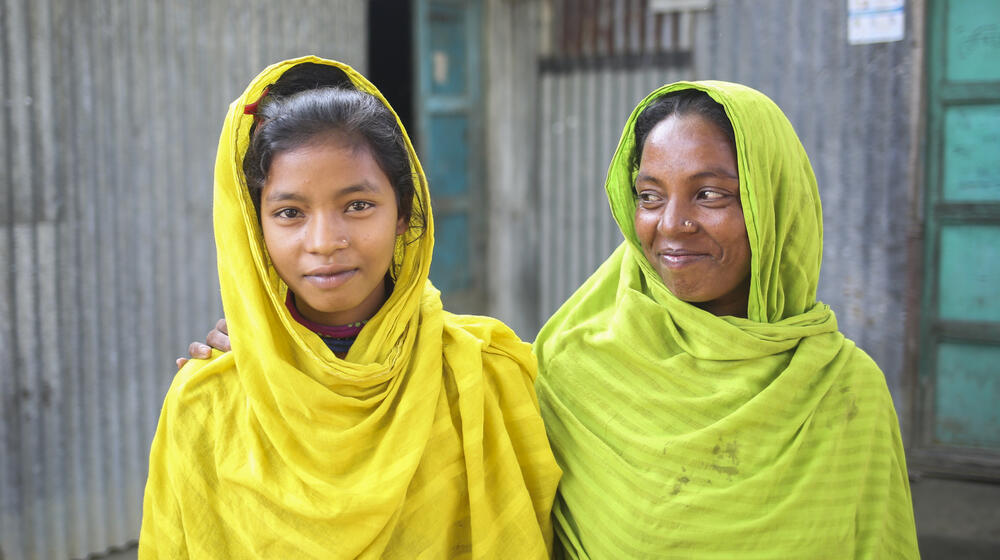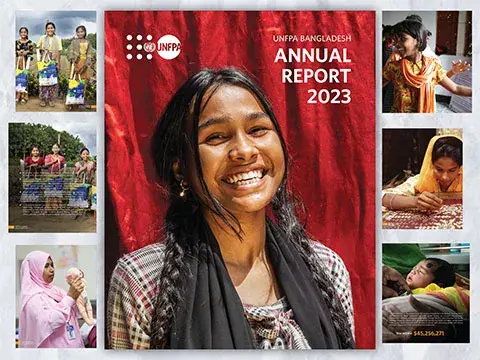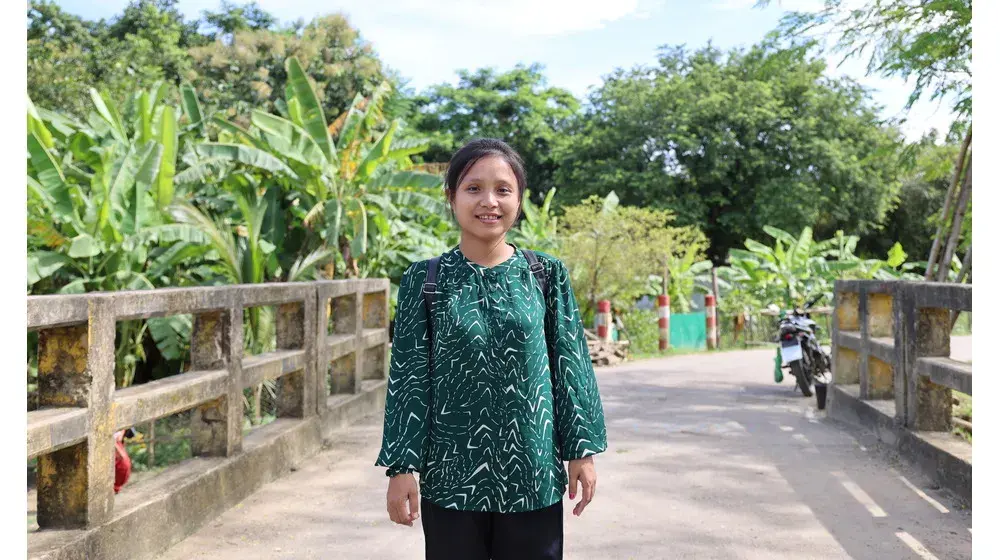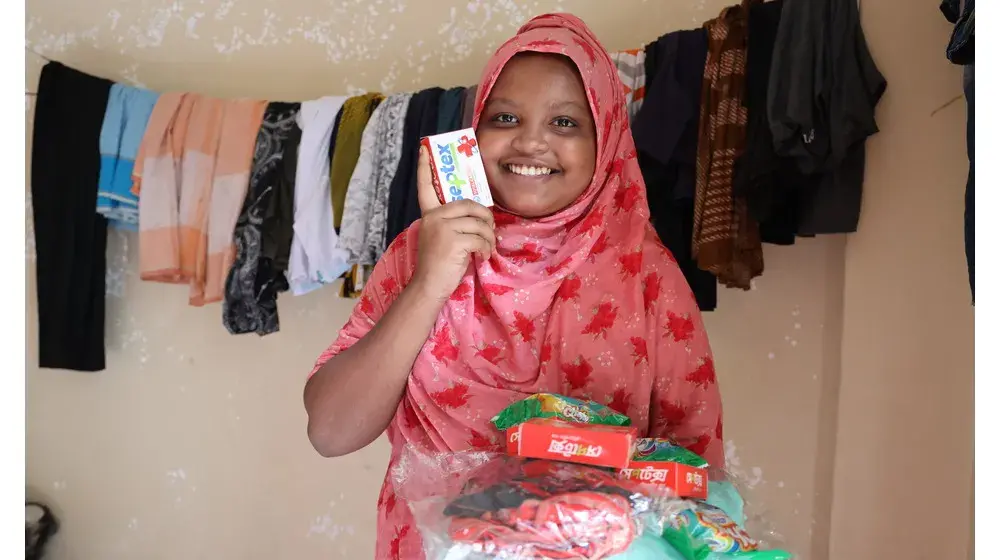“In my village, people think about girls in a very traditional way. Whenever a family has problems with money, the first thing they think about is stopping their daughter’s education and marrying her off.”
This is how 15-year old Aisha* describes the difficulties of growing up as an adolescent girl in her small village located alongside the Jamuna River in Jamalpur District. Each year during Bangladesh’s intense monsoon season, parts of the river overflow and cause tremendous hardships to rural families by destroying their crops, homes and livestock. With the effects of climate change, the problem has intensified over the past decade and is likely to become even more severe in the coming years.
When natural disasters strike in Bangladesh, the vulnerability of adolescent girls to a variety of dangers increases. If their families suffer from food insecurity, the nourishment of their brothers is often prioritized. If they have to evacuate from their homes, they may face sexual harassment in the emergency shelters.
However, the main concern in the minds of thousands of girls who face floods in Bangladesh each year is child marriage. To reduce the number of family members living on limited income or to cover dowry costs, financially struggling families often feel tempted to force their adolescent daughter into an early marriage. As a result of the marriage, the future prospects of the daughter are often diminished as they have to drop out of school and be confined to the domestic sphere for the rest of their lives.
In 2020, Aisha herself had her future put in danger, when her village was hit by a flood. The onset of the natural disaster coincided with the first months of the COVID-19 pandemic in Bangladesh, which had already caused a lot of financial hardship for Aisha’s family. Aisha’s family felt helpless and began to consider marrying her off to save on family costs.
“It became very hard to support our daughter’s education, but as I myself had gotten married very early due to financial issues my family had, I prayed that my daughter would not have the same fate as I did,” explains Aisha’s mother Marina*.
While Aisha’s family was contemplating what to do with their daughter’s future, a group of volunteers supported by UNFPA and Plan International arrived in their village to distribute menstrual health management kits to adolescent girls affected by the disaster. The kits were distributed as part of a larger effort funded by the UN CERF and Australia Aid to provide disaster relief to vulnerable communities in Kurigram, Gaibandha and Jamalpur districts before the floods intensified in their villages.
Aisha was chosen as one of the 4,500 adolescent girls in the targeted communities to receive the kit. As she went to receive the menstrual health management kit from the distribution site with her mother, the volunteers were simultaneously hosting an awareness-raising session on the harms of child marriage for the community.
Listening to the volunteers talk about the life-threatening nature of adolescent pregnancies and the damage depriving girls from their education causes for communities in the long run made Marina think about the larger implications of child marriage for the first time.
“Although child marriage is common in our area, we never thought of the severe effects of child marriage that could put our daughters at risk. After the youth volunteers spoke to us and explained these dangers, we took the message more positively,” she explains. She immediately decided that marrying off Aisha would not be a tenable solution to fixing the family’s problems.
“This project has been an eye-opener for many of us. My family and I are now more determined to support our daughter’s education in any way we can. I want to inspire her to fulfill her dream of becoming a nurse,” she concludes as she looks at her daughter affectionately.
On International Women’s Day this year, we draw attention to the disproportionate manner in which climate change harms women and girls in Bangladesh and around the world. Through its active efforts to help victims of natural disasters and mitigate the effects of climate change with other UN agencies in the country, UNFPA aims to secure the rights of adolescent girls in the country and work towards ending child marriage in Bangladesh by 2030.
*The names of the subjects have been changed to protect their identity





